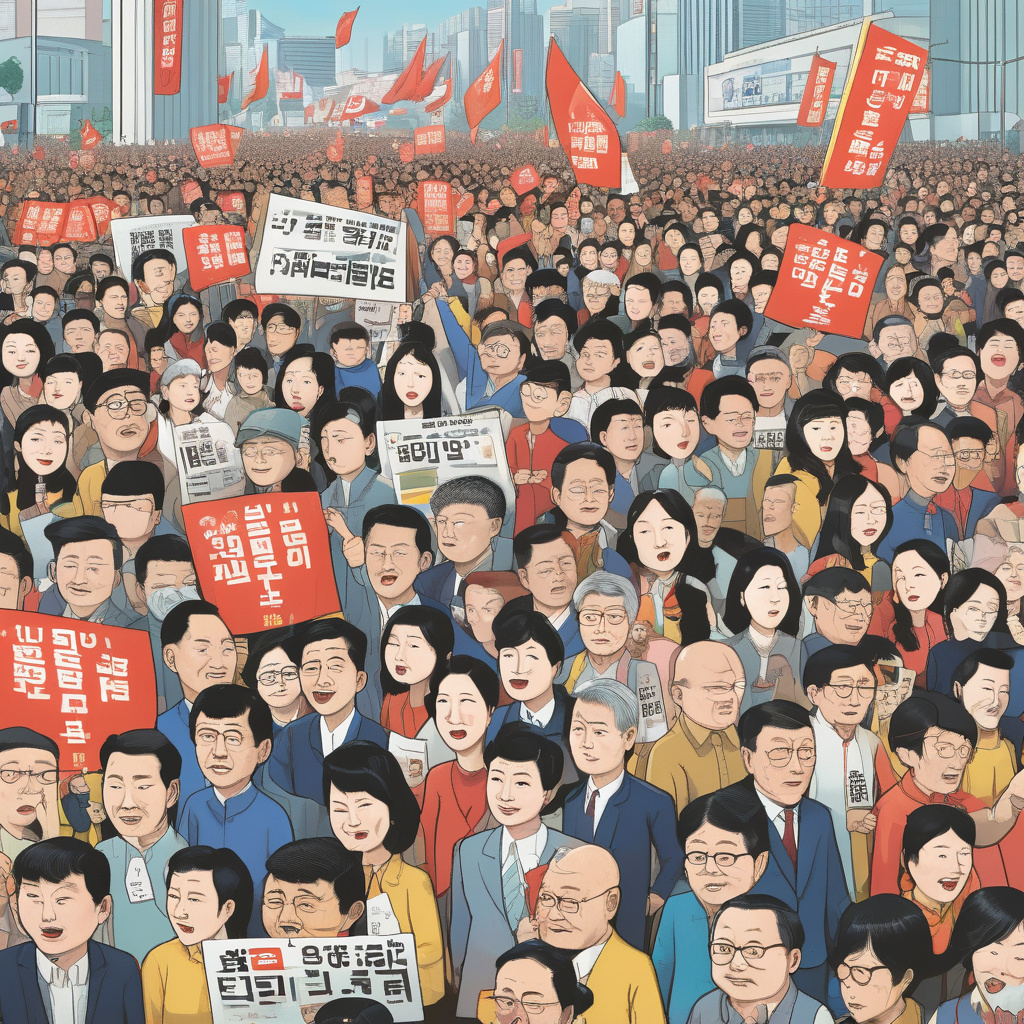South Korea’s Presidential Race: Kim Moon-soo Proposes Government Pension Funds Investing in Virtual Assets
The upcoming presidential race in South Korea has taken an interesting turn as one of the candidates, Kim Moon-soo, has proposed a bold strategy to enhance the credibility of the crypto market in the country. Kim Moon-soo’s suggestion involves government pension funds investing in virtual assets, a move that could have significant implications for the future of cryptocurrencies in South Korea.
The proposal put forth by Kim Moon-soo highlights the increasing importance of cryptocurrencies in the global economy and the need for governments to adapt to this new financial landscape. By suggesting that government pension funds invest in virtual assets, Kim Moon-soo is not only acknowledging the growing influence of cryptocurrencies but also signaling his commitment to embracing this technology as a key issue in his presidential campaign.
Investing government pension funds in virtual assets could have several benefits for the crypto market in South Korea. Firstly, it would provide a significant boost to the credibility of cryptocurrencies in the country, as government-backed investments would signal a level of trust and legitimacy that is currently lacking in the market. This could help to attract more institutional investors and mainstream adoption of cryptocurrencies in South Korea.
Furthermore, by investing in virtual assets, government pension funds could also potentially benefit from the high returns that cryptocurrencies have consistently delivered over the past few years. With traditional investment options offering low yields, especially in the current economic climate, virtual assets could provide an attractive alternative for pension funds looking to generate strong returns for their beneficiaries.
However, it is important to note that investing government pension funds in virtual assets also comes with risks. The volatile nature of the cryptocurrency market means that investments in this space can be highly unpredictable, with prices often experiencing significant fluctuations in short periods. This could expose government pension funds to potential losses, which may not be suitable for funds that are meant to provide long-term financial security for retirees.
Despite the risks involved, Kim Moon-soo’s proposal represents a significant step towards recognizing the importance of cryptocurrencies in the modern economy and the need for governments to adapt to this new financial reality. By taking a proactive approach to investing in virtual assets, South Korea could position itself as a leader in the crypto space and create new opportunities for growth and innovation in the country.
As the presidential race in South Korea continues to unfold, it will be interesting to see how other candidates respond to Kim Moon-soo’s proposal and whether it gains traction among voters. Regardless of the outcome, one thing is clear: cryptocurrencies are here to stay, and their influence on the global economy will only continue to grow in the years to come.
South Korea, Presidential Race, Crypto, Kim Moon-soo, Government Pension Funds
